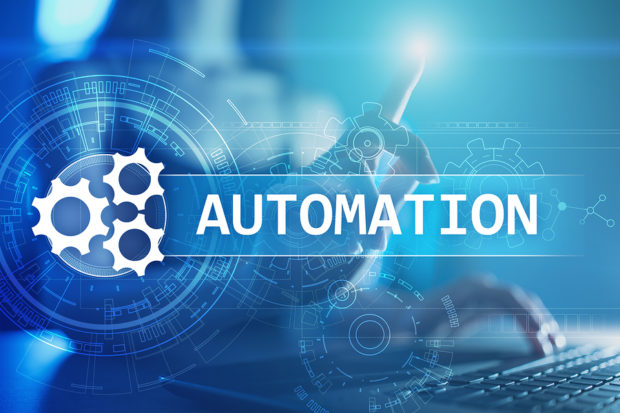Welcome to the age of “humane automation.”
As organizations ramp up technology investments in search of greater efficiency, a global conversation is emerging around the need to use artificial intelligence ethically and to ensure that people remain at the center of technological innovation.
“Humane automation” is the notion that as companies add artificial intelligence and other advanced technologies to their workflows, they maintain their focus on the benefits to people—both employees and customers. As advanced automation takes over many tasks and supports faster, more accurate delivery of information, it should also compliment human abilities in the workplace and provide humans more time to focus on high-value tasks and complex decision making.
Property/casualty insurance companies claims organizations are often on the leading edge of technology initiatives usually at the point when people are at critical moment in their lives. As we embrace technology to help our organizations flourish amidst the faster, more unpredictable economic cycles of the 21st century, we must keep sight of the goal: to improve outcomes for employees, clients and consumers.
Humane Automation: Technology that Puts People First
While artificial intelligence and other types of advanced automation can be applied in limitless ways, their potential impact coalesces around key themes, including two that are particularly relevant to claims organizations. First, it can provide greatly improved results by taking on simple tasks that individuals would have formerly performed in the management of information. It can complete these tasks faster, more efficiently, more accurately and with greater consistency across an organization.
Executive Summary
“Humane automation” is the notion that companies maintain their focus on employee and customer well-being even as they add artificial intelligence and other advanced technologies to their workflows, writes Alex Sun, president and CEO of Mitchell International, a company focused on serving the broader claims technology needs for property/casualty claims and collision repair industries. Here, he explores what that means to the P/C industry.By assuming these responsibilities, advanced automation enhances productivity and frees workers to consider issues of greater strategic significance that require more human, nuanced thinking. Second, artificial intelligence can process much more information far faster than a human can even begin to comprehend. In doing so, it can evaluate data for insights that humans might not be able to see—or potentially even conceive of—and present that information in an actionable way that supports decision-making. As a result, claims organizations can make better, more informed decisions that positively influence business and customer outcomes.
Freeing Workers from Simple Tasks Enables Greater Human Interaction
To better understand what it might mean to use automation to free workers from simple tasks so they can focus on more strategic tasks, imagine the productivity gains a company would see if each employee had an intelligent personal assistant. Using a combination of simple and advanced automation to observe and interpret desktop activities, take notes, open applications, transfer information between applications, and even run relevant processes in the background, could afford the human user more time to interact with a customer or handle other high-value tasks.
One way to think about this is through the lens of workflows that benefit from deep human interaction. Take nurse case management, for example. One of the most important things nurse case managers can do to positively influence workers’ compensation claims outcomes is to build strong relationships with injured workers. Yet, they spend a good deal of their time on repetitive tasks that do not contribute to these essential relationships.
If knowledge workers in the claims ecosystem could automate repetitive tasks, they could use that time on tasks that require a human touch: making personal connections, providing consultations, being empathetic—a human characteristic that can drive different behaviors and actions and truly help improve outcomes and restore injured people’s lives.
Evaluating Data for Deep Insights
Project Debater and similar technologies could have significant implications in the workplace. This type of technology can research vastly more information than a person can, and much faster. Ultimately, technology like Project Debater could serve as a fact-based sounding board, providing workers with information and insights to help them make better, more informed decisions that support better outcomes for the people they serve.
Claims Automation and Supporting Our Higher Purpose
Across the enterprise, we are looking at a future in which artificial intelligence gives us more control over the processes that are our companies’ backbones. It is a future in which we can execute vital functions in rapid time, monitor progress and make better-informed decisions. As claims organizations embrace advanced automation in support of their higher purpose to restore people’s lives after an unforeseen, challenging event, they can support the notion of “humane automation” by ensuring people remain at the center of technological innovation. That’s a win for not only the individual but everyone else touching the claim.
In a Northwestern University commencement speech, IBM CEO Ginni Rometty spoke of her high hopes for artificial intelligence. “The reality is this technology will enhance us,” Rometty said. “So instead of artificial intelligence, I think we’ll augment our intelligence.”





















 Teens’ First Year on the Road Most Deadly
Teens’ First Year on the Road Most Deadly  Viewpoint: Runoff Specialists Have Evolved Into Key Strategic Partners for Insurers
Viewpoint: Runoff Specialists Have Evolved Into Key Strategic Partners for Insurers  Machine Learning for Mutuals: What’s Working, What’s Not, and What’s Next
Machine Learning for Mutuals: What’s Working, What’s Not, and What’s Next  Premium Slowdown, Inflation Factors to Lead to Higher P/C Combined Ratio: AM Best
Premium Slowdown, Inflation Factors to Lead to Higher P/C Combined Ratio: AM Best 







